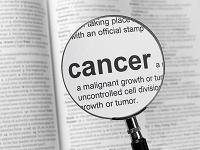Advertisment
Can asthma protect men from lethal prostate cancer?

Men with asthma are less likely to have aggressive prostate cancer or to die from the disease, according to a large, prospective cohort study published in the International Journal of Cancer.
The findings surprised investigators, who thought that immune system conditions characteristic of asthma might be associated with worse prostate cancer outcomes, lead investigator Elizabeth Platz, ScD, an epidemiologist at Johns Hopkins University, said in an interview with MedPage Today.
Platz and colleagues analyzed data from the Health Professionals Follow-Up Study, an ongoing prospective cohort of approximately 50,000 men ages 40 to 75 at enrollment in 1986. Participants completed questionnaires on demographics, medical history, and lifestyle factors at regular yearly intervals.
The researchers looked at data from 1986 through 2012, excluding men with any type of cancer diagnosis at baseline. For men who reported a prostate cancer diagnosis on a questionnaire, the investigators examined medical records and pathology reports.
A total of 6,294 cases of incident prostate cancer were confirmed. Of these, investigators classified 798 cases as “lethal” (diagnosed with distant metastases or progression to distant metastases). Of these lethal cases, 625 men actually died from the disease.
“We focused on lethal more so than total prostate cancer because lethal disease is the most relevant clinical outcome and it is less prone to the detection bias owing to PSA-based prostate cancer screening,” the investigators explained.
At baseline, 2,516 men (5.3%) had a history of asthma, and an additional 1,906 men were diagnosed with asthma during follow-up. The study also explored the relationship between prostate cancer and hay fever, which affected approximately one-quarter of the men.
Platz and colleagues used Cox proportional hazards regression to estimate relative risks, adjusting for known prostate cancer risk factors such as age, race, BMI, and smoking. Key results included the following:
Men with a diagnosis of asthma at any time during the study were less likely to develop lethal prostate cancer (RR 0.71; 95% CI 0.51-1.00).
Similarly, these men were also less likely to die from prostate cancer (RR 0.64; 95% CI 0.42-0.96).
A history of asthma was weakly associated with reduced risk for any kind of prostate cancer (RR 0.89; 95% CI 0.78-1.00).
Men with a relatively recent diagnosis of asthma (within the past 30 years) were at even lower risk for lethal prostate cancer (RR 0.36; 95% CI 0.14-0.97) than men who had been diagnosed more than 30 years ago (RR 0.81; 95% CI 0.52-1.24).
Men with a diagnosis of hay fever more than 30 years ago were “possibly weakly” at greater risk for lethal prostate cancer (RR 1.10; 95% CI 0.92-1.33) and of dying from the disease (RR 1.12; 95% CI 0.91-1.37).
The research team had decided to explore the relationship between asthma and prostate cancer because they suspected that the TH2-skewed T-cell response characteristic of asthma, and the resulting chronic inflammation, might be involved in the pathogenesis of prostate cancer or be associated with more aggressive forms of the disease, Platz told MedPage Today.
So after puzzling over the results, the researchers suggested three possible explanations. “They’re all plausible, but not all equally probable,” Platz said.
The one she leans toward is that the TH2-skewed immune response linked with asthma also results in large numbers of circulating eosinophil cells. These cells are believed to play an important role in antitumor immune response, and they have in fact been shown to lyse prostate cancer cells in vitro.
Another possibility has to do with TH17 T cells, which have been associated with chronic inflammation and cancer in both human and animal studies. Patients with asthma might have a genetic or environmental propensity for a CD4+ T-cell helper response skewed away from a TH17 response, the investigators wrote.
Finally, CD4+ helper T cells known as regulatory T cells (Treg) may offer another explanation. These cells are thought to limit host response to a tumor, and research suggests they are deficient either in function or number in patients with asthma, Platz and colleagues noted.
“Although at this time we do not have an explanation for the difference in the direction of the associations for asthma and hay fever with prostate cancer, our findings may lead to testable hypotheses about specific immune profiles in the etiology of lethal prostate cancer and the disease overall,” the investigator concluded.
“Our colleagues need to go back into the lab and see if they can figure out the explanation for what we observed,” Platz said.
At least one observer thinks that teasing out the potential connections may be more challenging than it appears at first.
“It’s an interesting association, and it may lead to some interesting findings, but I suspect it’s more a question of several degrees of separation rather than a more direct association,” said Neil Schachter, MD, a pulmonologist at Mount Sinai Hospital, in New York City, in an interview with MedPage Today.
This research was supported by the National Cancer Institute and the National Heart, Lungand Blood Institute.
Neither Platz nor Schachter reported any relevant financial relationships with industry.
Reference: Platz EA, et al “Asthma and risk of lethal prostate cancer in the Health Professionals Follow-Up Study” Int J Cancer 2015; DOI: 10.1002/ijc.29463.





